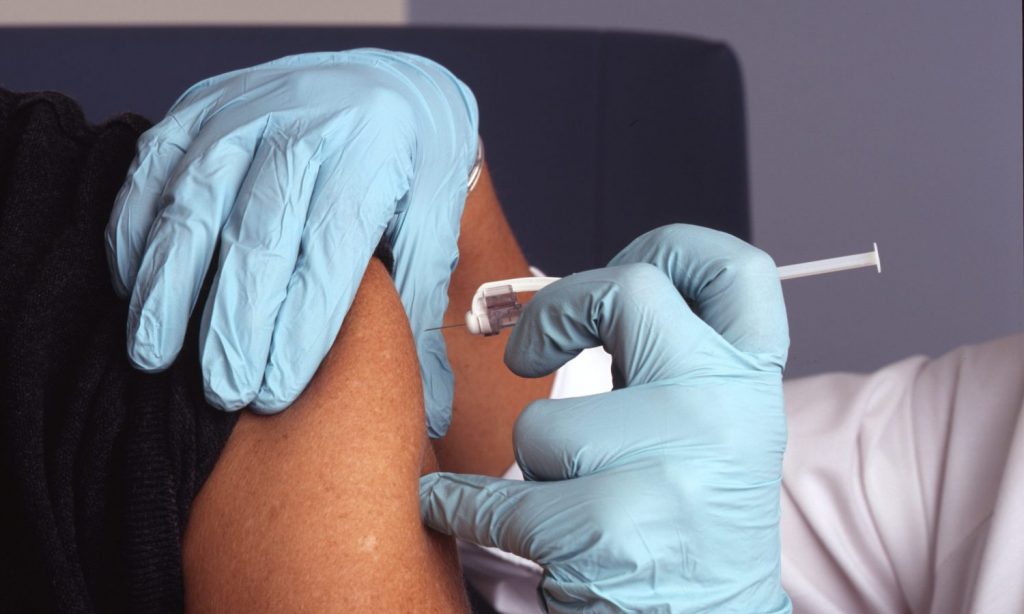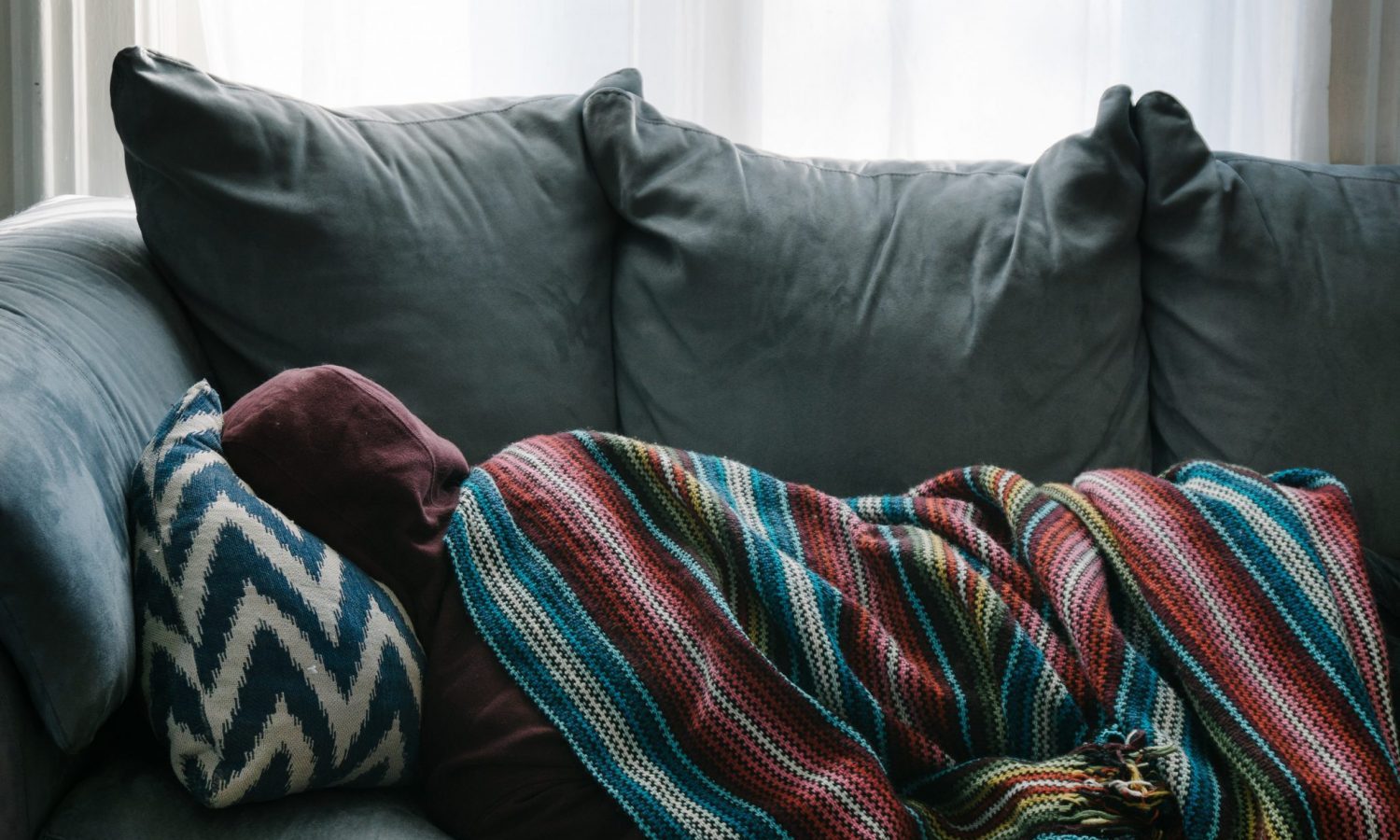Aside from slowing down your immune system’s response to the pathogen, this can also lower the durability of the vaccine’s effectiveness.
The COVID-19 vaccines are highly effective, reducing the spread of the disease and virtually eliminating the risk of getting dangerously ill. Still, factors like age and comorbidities are important when gauging the vaccine’s effectiveness. A study found one additional factor that could have a significant impact on your antibody response to the vaccine.
According to a team of researchers from Ohio State University, your overall stress levels can hamper your immune response. The presence of stress can interfere when your immune system is producing a response to a pathogen like the coronavirus.
RELATED: Indoor Face Masks Are Optional — Here’s What That Means For Vaccinated People

“These findings suggest that with the COVID-19 vaccine when you’re more stressed and more anxious, it may take a little longer to develop antibodies. So you should allow more time before assuming you’re protected,” said OSU clinical health psychologist Janice Kiecolt-Glaser.
Aside from slowing down your immune system’s response to the pathogen, stress can also lower the durability of the vaccine’s effectiveness.
Stress and anxiety affect many areas of your health. It’s a condition that’s connected to your immune system, meaning that it could impact your entire vaccination process, from how effective your body’s response is, to how long it lasts. Stress could also increase side effects at the time of injection.
RELATED: Here’s When You Need To Get Tested For COVID-19 If You’ve Been Vaccinated
The OSU study showed that people who were stressed or depressed when they got their shot experienced malaise, lethargy and irritability more often than others. The longer the period of stress or depression, the worse the side effects.
While it’s normal to be stressed out during these strange times we’re living through, it’s important to try to make the most out of your vaccine. Before you get your shot, try to address your stress and anxiety in some way, whether you’re talking to someone or taking care of your mental health.
Even if you don’t completely resolve the problem by the time of your shot, you’ll still have addressed some behaviors that can make your vaccine more effective and the experience more manageable.


